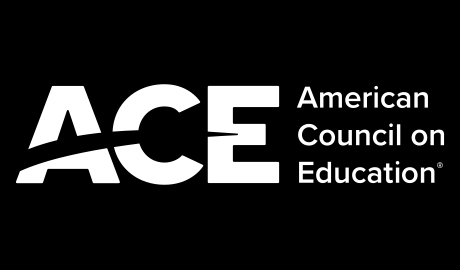Social Science Courses by Outlier by Savvas
Transform your social science classroom into a college lecture hall

Captivating Courses Students Love
Cinematic lectures from experts in the field, combined with interactive learning, create the kind of college courses that students actually enjoy and succeed in.
Seamless Educator Experience
Educators get everything they want—simple setup, engaging lessons, real-time visibility into student progress—without the extra grading or required credentials.

College Credit Students Can Take Anywhere
Recommended by the American Council on Education*, each course earns students real college credits. We’ve sent transcripts to 800+ institutions nationwide—and counting!
Essential social science concepts and techniques needed for college credit (and then some!)
-
Intro to Psychology
-
Principles of Economics
-
Intro to Macroeconomics
-
Intro to Microeconomics
Key Concepts Covered
-
Introduction
- The scientific method
- Research in psychology
- Statistical analysis
- Ethical research
- Cultural psychology
-
The Brain
- The nervous system
- The study of the brain
- Neurons and neurotransmitters
- The endocrine system
- Perception
- Vision, audition, and other senses
- Classical conditioning, operant conditioning, and observational learning
-
Memory and Intelligence
- Encoding, storing, and retrieving memory
- Forgetting and improving memory
- Cognitive psychology
- Measuring intelligence
-
Social Psychology
- Elements of language
- Language development
- Personality psychology
- Psychodynamic theories
- Approaches to personality: trait, humanistic, behavioral, social-cognitive, and biological
- Social influence
- Social thinking and cognition
- Prejudice, aggression, and relationships
-
Developmental Psychology and Abnormal Psychology
- Emotion and emotional expression
- Theories of motivation
- Developmental psychology and theories of development
- Stages of development
- Consciousness, sleep, and other altered states
- Psychological disorders and abnormal psychology
- Treatment practices for mental disorders
- The sociocultural model of psychology
- Happiness and stress
Key Concepts Covered
-
Supply and Demand in Microeconomics
- Foundational economic tools
- Supply, demand, and equilibrium
- Consumer and producer surplus
- Price floors, price ceilings, and deadweight loss
- Consumer and firm behavior
- Utility maximization and the production function
- Implicit and explicit costs
- Short-run costs, long-run costs, and profit maximization
-
Market Structures and Market Failure
- Types of market structures
- Long-run adjustments
- Perfectly competitive markets
- Monopoly, regulation, and antitrust policies
- Firms in game theory: players, strategies, and Nash equilibria
- Market failure and externalities
- Measuring and modeling externalities with environmental policy
-
The Labor Market and Inequality
- Public goods and common pool resources
- The competitive model of the labor market
- Monopsony, unions, and minimum wages
- Measuring economic inequality
- Causes and outcomes of inequality in the U.S.
- Categorical and intergenerational inequality
-
Macroeconomic Models
- Macroeconomics and economic growth
- Gross domestic product (GDP)
- Nominal GDP and real GDP
- Measuring unemployment
- Price indices and inflation
- Aggregate demand and aggregate supply
- Keynesian economics and the expenditure multiplier
-
Fiscal and Monetary Policy
- Federal, state, and local government budgets
- Fiscal policy
- Credit
- The money market
- Banks, money creation, and money management
- Monetary policy and the central bank
- The lender and dealer of last resort
Key Concepts Covered
-
Introduction to Macroeconomics
- A first look at the economy
- Theory of demand
- Theory of supply
- Measuring the economy
- Modeling the macro economy
- Economic growth
- Business cycles
-
The Government, Money, and Economic Perspectives
- The Keynesian perspective
- The expenditure multiplier
- Government budgets
- Fiscal policy
- The Neoclassical perspective
- Automatic price adjustment expectations
- Money vs. credit
- Money markets and the financial system
-
The Central Bank and Monetary Policy
- Evolution of money management
- How the Central Bank conducts monetary policy
- Normal crisis and financial crisis
-
Government Debt and International Finance
- Government borrowing, budget deficits, and public debt
- The Phillips curve
- Problems with discretionary fiscal policy and monetary policy
- How the foreign exchange market works
- Rates of return Interplanetary economics
Key Concepts Covered
-
Introduction to Microeconomics
- Foundational economic tools
- Supply, demand, and equilibrium
- Consumer surplus and producer surplus
- Price floors and price ceilings
- Elasticity
- Utility maximization
- Behavioral economics
- Production and costs
- Profit maximization
-
Perfect Competition
- Market structures, perfect competition, and long-run supply
- Profit maximization in perfect competition
- Long-run adjustments
- Efficiency in perfectly competitive markets
-
Game Theory, Monopoly, and Oligopoly
- Dominant strategies and Nash Equilibrium
- Games with many players
- Games with a sequence of moves
- Mixed strategies
- Market power and barriers to entry
- Profit maximization under monopoly
- Regulation and antitrust: limiting monopolistic competition
- Oligopoly, duopoly, and cartels
-
Market Failure and Labor Markets
- Introduction to market failure
- External effects
- Solutions to market failure
- Public goods and common pool resources
- Asymmetric information, moral hazard, and adverse selection
- The competitive model of the labor market
- Monopsony
- Unions and minimum wages
-
Poverty, Inequality, and Global Economics
- Absolute and relative poverty
- Income and wealth
- Education and health inequality in the USA
- Discrimination
- Global inequality
- Globalization and international trade
- Absolute and comparative advantage
- Labor: outsourcing, offshoring, and global migration
School Stories
“I was blown away with how successful our kids were with Outlier.” Jack Wallace, Principal of St. Augustine Prep High School
Read Case StudySocial Sciences Courses Frequently Asked Questions
-
Are social sciences courses completely online?Yes, Outlier courses are 100% online and asynchronous. Your students can learn with any teacher, during any class period—anywhere in the universe with Wi-Fi and a laptop or desktop computer.
-
What support is available for students and/or teachers?
Your students have access to robust 24/7 support and unlimited tutoring in all math and writing courses. Your teachers get complete visibility into student progress in our Partner Dashboard, including:
- Progress monitoring based on the course syllabus and schedule
- Grade pacing and forecasting based on students’ performance
-
What is the minimum/maximum enrollment?Outlier courses have unlimited enrollment. So you can mix and match courses to suit your school’s unique needs.
-
What technology does my school need to take Outlier courses?
Each student must have access to technology that meets the technical requirements noted in this Help Center article.
-
Are there any student eligibility requirements?Students must be at least 13 years old. Students who enroll in an Outlier course should be ready for the academic rigor of college-level coursework and carefully consider their existing responsibilities and dedication.
-
What is the time commitment for Outlier Social Sciences courses?
Outlier courses are as academically rigorous as they are engaging. Students can expect to spend about 45 minutes a day (about 5 hours per week), including time at school and at home. We recommend students:
- Have at least one class period in their school schedule dedicated to their Outlier course
- Take only 1 Outlier course at a time
-
Are there any Social Sciences course prerequisites?
Outlier courses are as academically rigorous as they are engaging. Students can expect to spend about 45 minutes a day (about 5 hours per week), including time at school and at home. We recommend students:
- Have at least one class period in their school schedule dedicated to their Outlier course
- Take only 1 Outlier course at a time
-
How are Outlier Social Sciences courses structured?Outlier courses are divided into a series of chapters and sections. Each section contains cinematic video lectures and active learning (interactive digital textbook) that help students learn the course content. Some courses also include sample problems or flashcard sets that reinforce their understanding of course concepts and prepare them for exams. Students demonstrate their knowledge on graded assessments like weekly writing assignments, quizzes, midterm exams, and final exams.
Prepare your students for college and career success. All with one solution.
Whether you want to empower your students to explore potential careers, prepare for college, or become certified professionals, it’s easy to do it all with Savvas PathMaker. Simply mix and match dual enrollment courses and CTE courses from our comprehensive catalog to create personalized pathways for every student.
Mix and match to build your perfect career pathways:
| Example Pathway | What students learn | What students earn |
|---|---|---|
| IT Associate | Networking† Cybersecurity 1† Professional Communication * |
Cisco Certified Network Associate 3 college credits |
| Aerospace Technology | Aeronautics and Space Travel † Drones: Remote Pilot † Intro to Astronomy * |
FAA Part 107 Commercial Drone Pilot 3 college credits |
| Digital Marketing | Meta® Social Media * Adobe InDesign® † Professional Communication * |
Meta® Certified Digital Marketing Associate Adobe® Certified Professional in Print & Digital Media Publication using Adobe InDesign® 3 college credits |
* Outlier by Savvas Dual Enrollment
*American Council on Education or ACE evaluates formal education courses and programs for college credit. For more information, visit ACE Learning Evaluations online at www.acenet.edu/evaluations.